Tretinoin vs Retinol vs Retinal:
What's The Difference?
Written by: Radhika Sen
Updated on: 14 August 2024
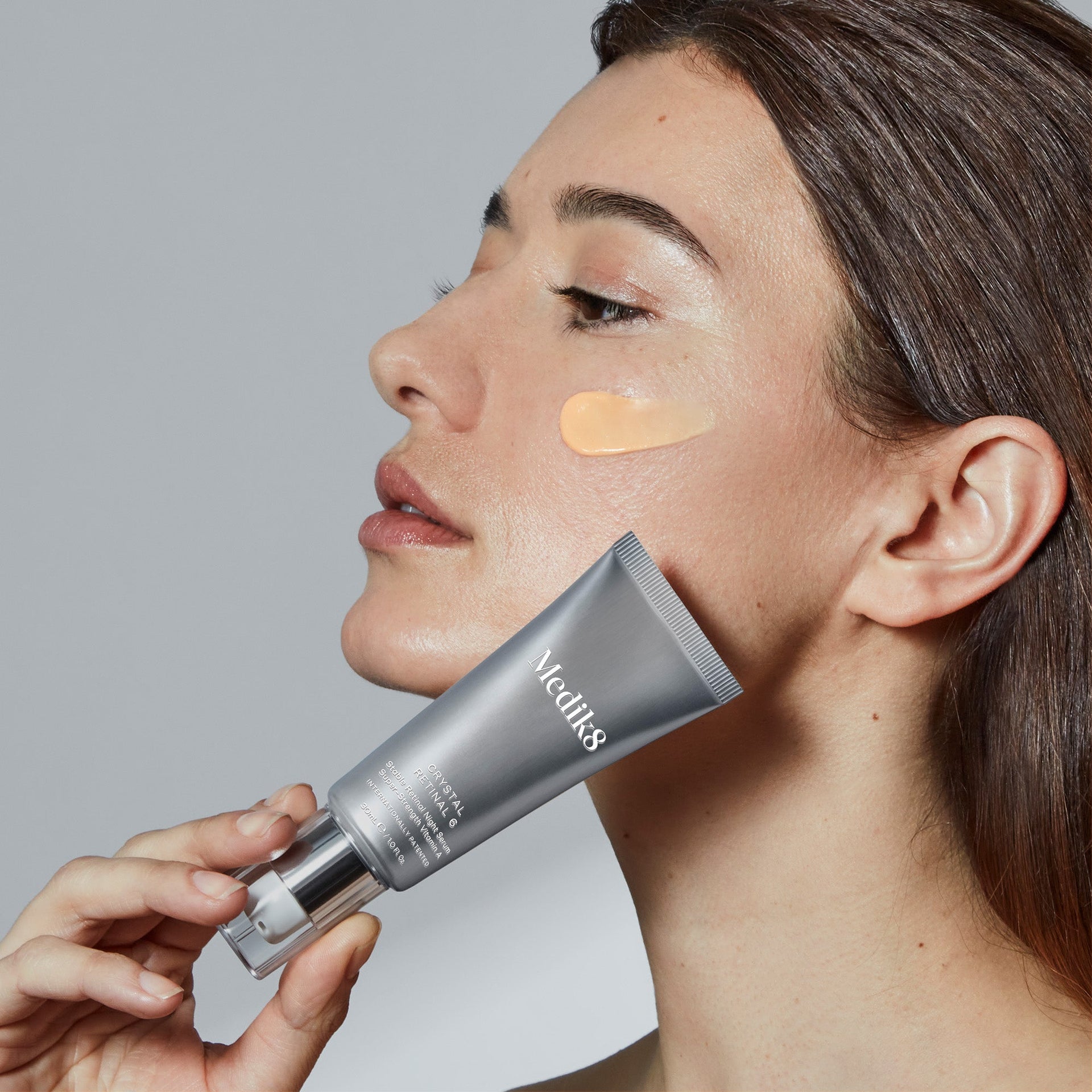
Retinoids are widely popular in skincare for their powerful anti-ageing and skin-renewing properties. They help boost cell turnover, reduce wrinkles, and improve skin texture. Among them, retinol and retinaldehyde (retinal) are often compared. Retinol is a popular over-the-counter option for those looking to address signs of ageing, while retinaldehyde offers a more potent alternative, delivering similar benefits to tretinoin without requiring a prescription. Tretinoin, however, is a potent vitamin A derivative that’s only available with a prescription and is commonly used to target fine lines and wrinkles.
This guide will explore the differences between retinol, retinaldehyde, and tretinoin, helping you understand their unique benefits and which might be best for your skincare needs.
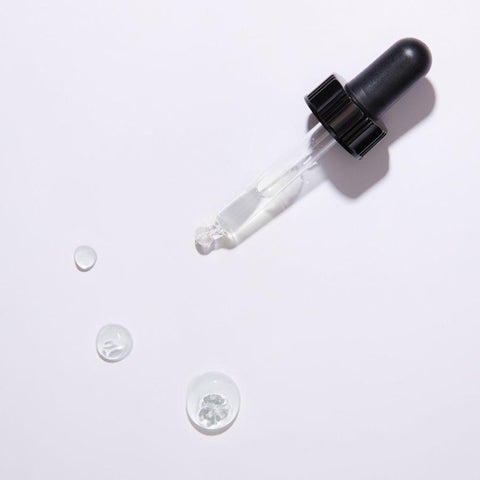
What is retinol?
Retinol is a form of vitamin A in the retinoid family, known for stimulating skin cell renewal and collagen production. This enhances skin radiance, tone, and texture, promoting a more youthful appearance. When applied, retinol converts to retinal and then to retinoic acid in the skin, becoming active and delivering visible results.
Is tretinoin the same as retinol?
Tretinoin and retinol are both derivatives of vitamin A, which is why they are often thought to be the same. However, tretinoin is a high-strength, active form of vitamin A that is only available with a prescription, while retinol is a cosmetic, over-the-counter option. This comparison arises because both can sometimes be used to treat similar skin concerns.
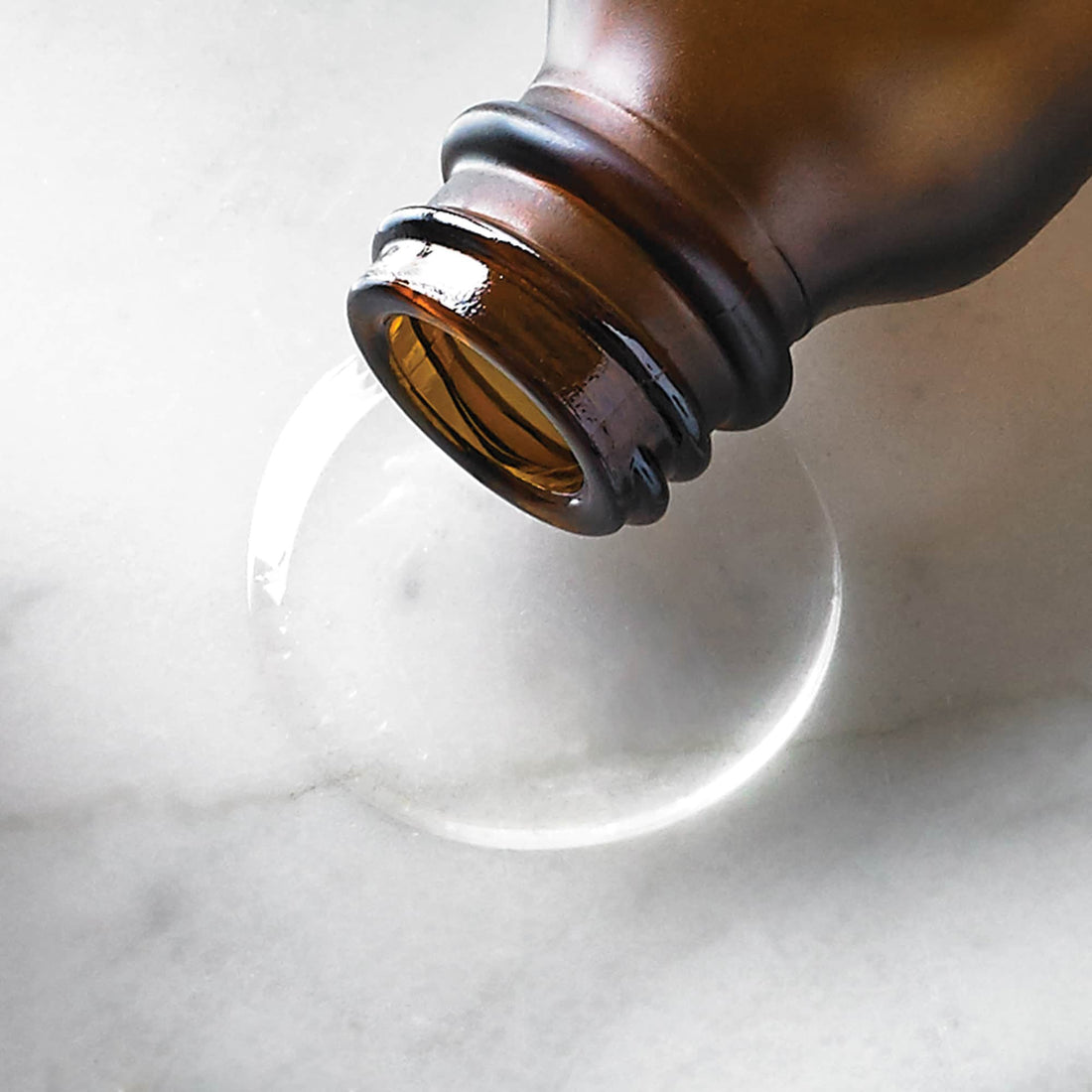
Retinol vs retinal vs tretinoin
Retinol, retinaldehyde (retinal), and tretinoin are all part of the retinoid family but differ in strength and effectiveness. On the retinoid strength scale, retinol is the mildest, making it suitable for most skin types with a low potential for irritation. Although closer to the active form retinoic acid and more powerful, retinal is proven to have the same low irritation potential as retinol. This means that you can have a more potent product, without compromising your skin's comfort. While tretinoin is the strongest, it has a higher potential for irritation.
| Vitamin A | Conversions On Vitamin A Pathway | Potential For Skin Irritation |
|---|---|---|
| Retinol | 2 Conversion Steps Away From Retinoic Acid | Low |
| Retinal | 1 Conversion Step Away From Retinoic Acid | Low |
| Tretinoin | Retinoic Acid | High |
What is tretinoin?
Tretinoin is a potent high-strength active form of vitamin A that is only available with a prescription after a consultation with a private dermatologist or GP (in the UK). It's widely used for treating acne, fine lines, and sun-damaged skin and is available under various brand names, such as Retin-A. It is unavailable over the counter due to its strength and potential for irritation.
What is retinaldehyde?
Retinaldehyde, or retinal, is a form of vitamin A belonging to the retinoid family. It delivers results up to 11x faster than standard retinol*, making it a revolutionary ingredient in skincare for minimising visible signs of ageing. Although retinal's potential in skincare is significant, its inclusion in potent formulas has become more widespread only recently, due to advancements in stabilising the molecule. This makes it a cutting-edge ingredient for visibly reducing signs of ageing. Here at Medik8, we are the experts in Vitamin A and have pioneered a patented retinal stabilisation system, reinventing the vitamin A category. Whether you want to improve your skin’s clarity, enhance visible radiance or diminish the appearance of fine lines and wrinkles, this multifunctional age-defying ingredient delivers on every level.
*G. Siegenthaler et al., Retinol and retinal metabolism, Biochemical Journal, 1990, 268, pp 371-378
Key differences between retinol, retinal and tretinoin
| Aspect | Retinol | Retinal (Retinaldehyde) | Tretinoin |
|---|---|---|---|
| Strength | Mild to strong | Strong | Strong |
| Availability | Over-the-counter | Over-the-counter | Prescription-only |
| Conversion Process | Converts to retinal, then to retinoic acid | Converts directly to retinoic acid | Directly retinoic acid |
| Effectiveness | Results over time | Acts 11x times faster than standard retinol | Faster results for those who need intense prescription-strength treatment |
| Skin Irritation | Low potential for irritation | Low potential for irritation | Higher potential for irritation |
| Best For | Beginners, sensitive skin | Blemish-prone skin, mature and ageing skin, sensitive skin and younger skin | Patients with specific concerns such as acne |
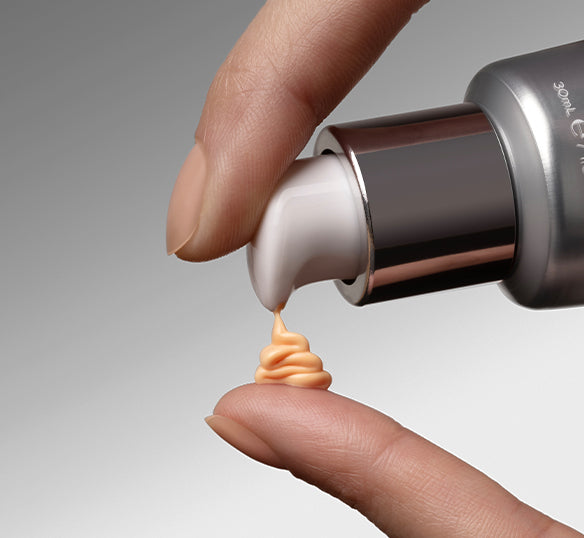
Strength and conversion
Tretinoin is a stronger form of vitamin A than retinol, as it is already in its active form — retinoic acid — requiring no conversion in the skin. This direct action makes tretinoin more potent and effective, delivering faster results.
Prescription vs over-the-counter
Tretinoin is typically available by prescription only, due to its high potency and potential for irritation. In contrast, retinol is milder and can be found in over-the-counter skincare products, making it more accessible for everyday use. At Medik8 our range of Intelligent Retinol products are enhanced with Time Release Technology that slowly releases retinol into the skin overnight, reducing the irritation potential that can be expected with other retinol products.
For those looking for even more potent results without a prescription, retinaldehyde (retinal) is an excellent alternative. Retinal is a step closer to retinoic acid in the vitamin A pathway, providing faster and more effective results compared to retinol, while still being available over-the-counter. Although it’s closer to the active form of retinoic acid, retinal is proven to have the same low irritation potential as retinol. This means that you can have a more powerful product, without compromising your skin's comfort.
When they’re used
Both retinol and tretinoin are commonly used to reduce acne breakouts and treat signs of ageing. However, tretinoin, being more potent, is often prescribed by doctors to address other skin conditions, such as severe acne, hyperpigmentation, and psoriasis.
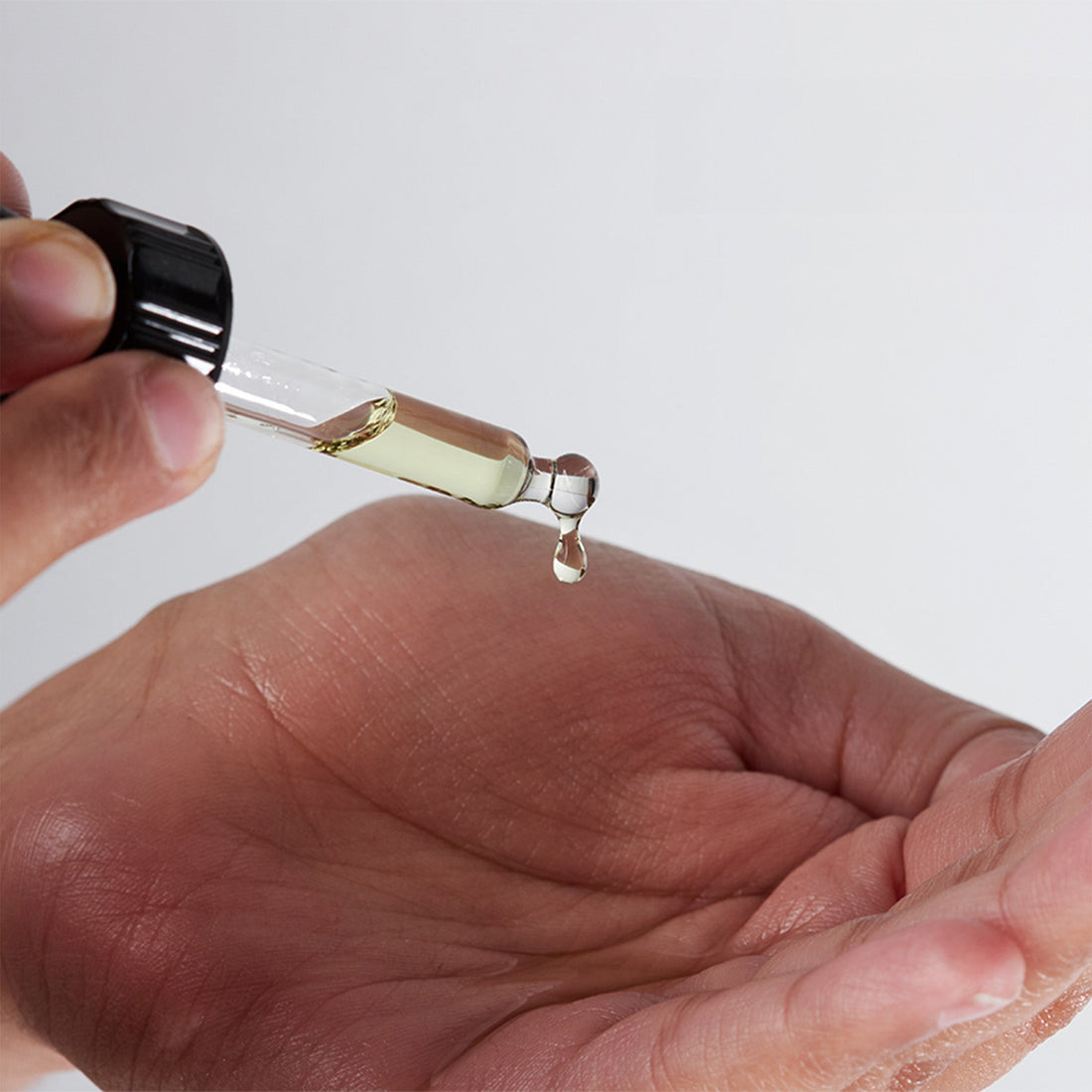
Speed of results
Retinal offers a compelling balance for those seeking visible skin improvements. This remarkable molecule works significantly faster than retinol, delivering noticeable results without the need for a prescription. Retinol, while effective, generally works more gradually, making it ideal for those with sensitive skin or who are new to retinoids. On the other hand, tretinoin’s higher potency can lead to quicker outcomes in treating acne and other medical concerns, but it also comes with a higher risk of irritation and increased skin sensitivity. Retinal bridges the gap, offering rapid improvements with better tolerability than tretinoin.
Retinaldehyde vs tretinoin
Retinaldehyde (retinal) and tretinoin are both powerful forms of vitamin A, but they differ significantly in strength and application. Tretinoin is a potent, prescription-strength retinoid that acts directly as retinoic acid on the skin. However, this potency also comes with a higher risk of irritation and increased sensitivity.
On the other hand, retinaldehyde offers a less aggressive, prescription-like potency. Positioned closer to retinoic acid in the vitamin A pathway, retinaldehyde delivers faster results than retinol while maintaining better tolerability than tretinoin. It is available over-the-counter, making it an excellent choice for those seeking significant age-defying benefits with a lower risk of irritation.
As such retinal and tretinoin caters to different skin needs and types. Your choice will depend on your skin’s tolerance, your previous experience with retinoids and the specific concerns you wish to address.
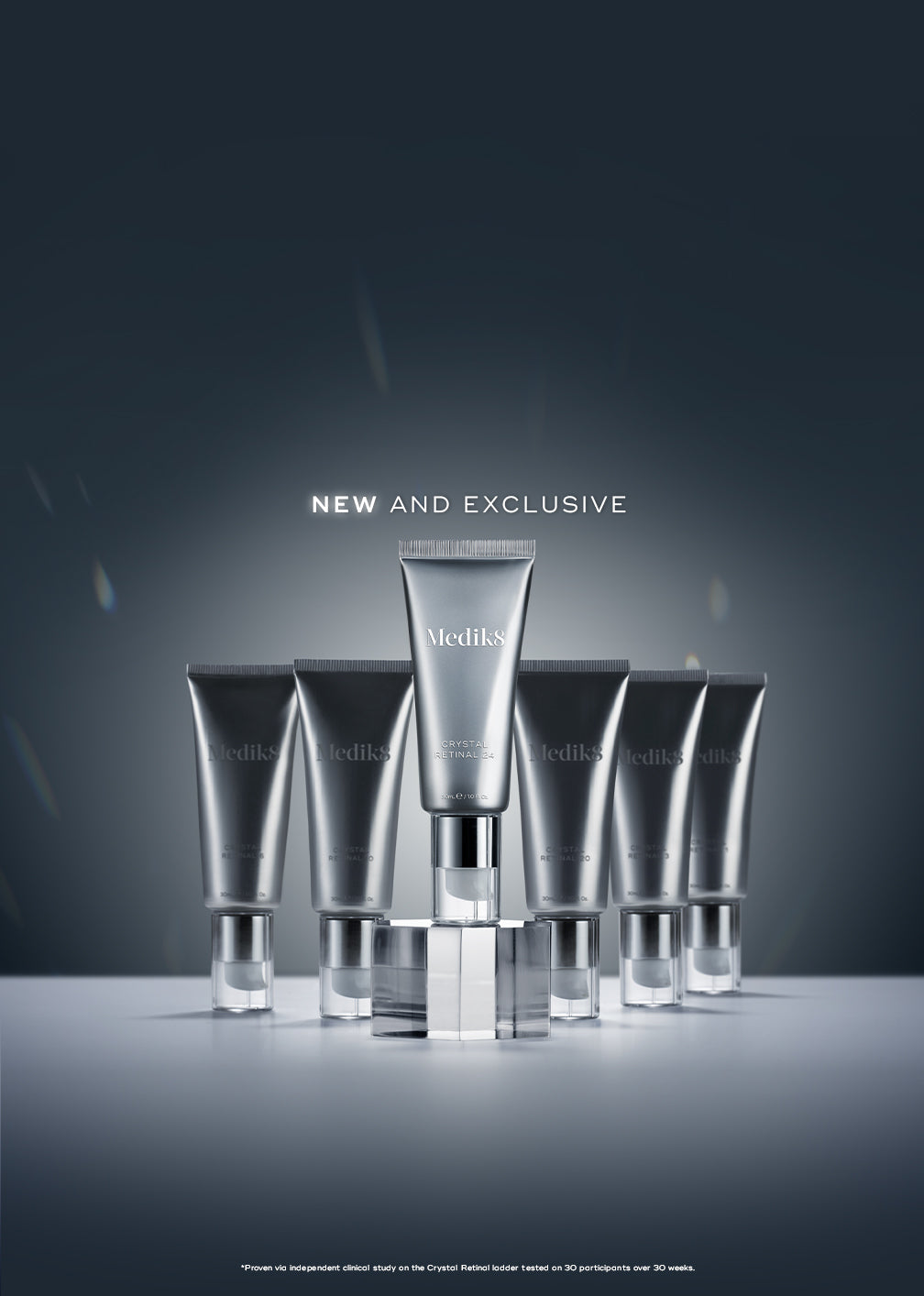
Medik8 Crystal Retinal 24 - HIGHER, STRONGER, FASTER
Medik8’s new Crystal Retinal 24 exemplifies this advanced approach. It’s the pinnacle of the Crystal Retinal ladder, for expert users looking for the very best in clinically-proven, age-defying results.
Crystal Retinal 24 contains crystal-encapsulated, 0.24% retinal to visibly smooth, brighten and firm skin. This is our highest strength retinal yet, for the most powerful age-defying results without a prescription.
Our internationally patented stability system ensures maximum retinal potency and effectiveness until the very last drop. All this with minimal irritation, thanks to our industry-leading encapsulation technology which delivers gentle yet powerful results.
Our unique Crystal Retinal
ladder of 6 progressive strengths (0.01 - 0.24% retinaldehyde) means you can keep experiencing ever-improving visible benefits that tackle the most stubborn fine lines, wrinkles and dark spots.
Is tretinoin better than retinol?: Which should you choose
It can be confusing and overwhelming trying to figure out which active skincare ingredient is best for you. There are a lot of considerations — your skin type, concerns, sensitivity and desired outcomes. Retinol and retinal
are more easily accessible and can be highly effective for various skin concerns without requiring a prescription. Retinol is often gentler than prescription-strength retinoids like tretinoin, making it suitable for those with sensitive skin or those new to retinoids. Tretinoin, on the other hand, is often chosen for more targeted treatments, such as persistent acne. Before considering prescription-strength tretinoin, it’s worth exploring other retinol and retinal alternatives within retinoids that offer strong results with less potential for irritation.
The first and always recommended step is to talk to your doctor or dermatologist. If you’re concerned about which ingredients you put on your skin or are experiencing skin challenges, your doctor or dermatologist can help diagnose and treat any skin conditions.
Who should use retinol?
Retinol is suitable for a wide range of skin types and ages, provided you start with an appropriate concentration for your skin’s tolerance.
✓ Early Signs of Ageing: Individuals in their late 20s to 40s looking to address the first signs of ageing, such as fine lines, uneven texture, and slight pigmentation.
✓ Normal to Oily Skin: Those with normal, oily, or combination skin who want to enhance skin radiance and improve overall texture without excessive dryness.
✓ Retinoid Beginners: Individuals new to retinoids who need a gentle yet effective introduction to vitamin A for long-term skincare benefits.
Age Brackets:
Late 20s to Early 40s: Ideal for those seeking to prevent and reduce the early signs of ageing while maintaining youthful, radiant skin.
However, at Medik8, we particularly recommend retinal over retinol because retinal offers a powerful combination of effectiveness and gentleness, delivering noticeable results with potentially less irritation.
Who should use retinal?
Anyone can use retinal, provided you start with a concentration that’s low enough for your skin. This is especially important if you aren’t already using a retinoid, such as retinol. At Medik8 we always recommended clinical strength retinals for:
✓ Mature Skin: Individuals with early to moderate signs of visible ageing, such as fine lines and slight texture changes, who seek effective anti-ageing treatment without the strength of tretinoin.
✓ Blemish-Prone Skin: Those with blemish-prone skin or visible congestion, due to retinal’s unique antibacterial properties (which can help to tackle blemish-causing bacteria).
✓ Sensitive Skin: Those with sensitive or easily irritated skin who need a gentler alternative to tretinoin but still want to address ageing and skin texture issues.
✓ Prevention and Maintenance: Adults in their late 20s and 30s who want to prevent signs of ageing and maintain youthful skin with a less aggressive option.
Tretinoin vs retinol for wrinkles
Tretinoin, a prescription-strength medication primarily used for acne, also effectively addresses wrinkles due to its high potency and direct action as retinoic acid. This results in faster and more noticeable improvements in skin texture. Retinol, on the other hand, is widely used for anti-ageing and works gradually to smooth fine lines and wrinkles, making it ideal for those with sensitive skin or who are new to retinoids. For those looking for a step up from retinol with less risk of irritation than tretinoin, retinaldehyde (retinal) offers a powerful alternative, delivering visible results with greater comfort.
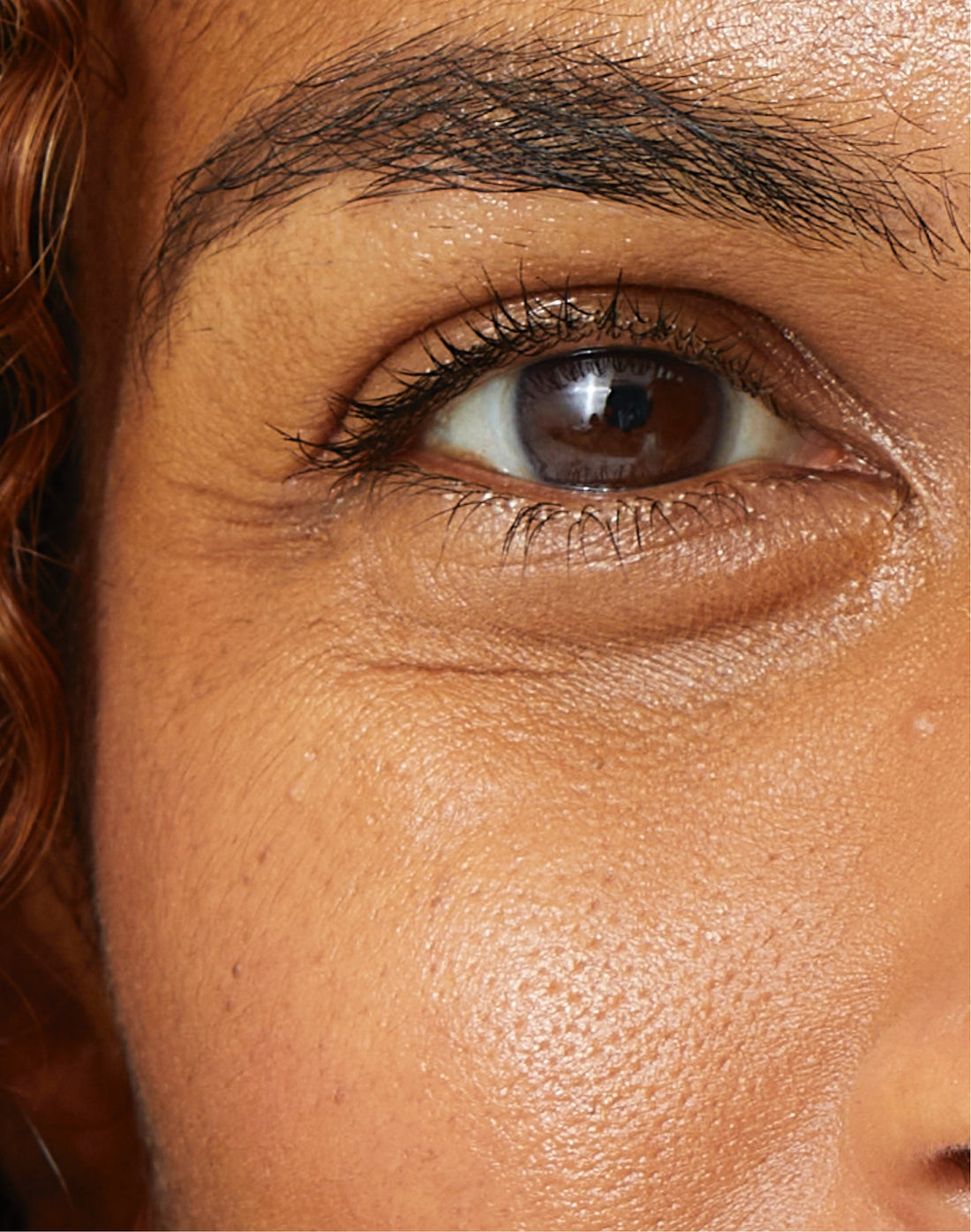
Who should not use retinol or tretinoin?
For individuals with highly sensitive skin, severe eczema, rosacea, or very dry skin, we advise consulting a dermatologist or GP before using retinol or tretinoin. These conditions can increase the risk of irritation or exacerbation, especially if the skin is already compromised or sunburned. Your healthcare professional can provide tailored advice to ensure safe and effective use of these ingredients
Pregnant or Breastfeeding Individuals: As a cosmetics brand, we are unable to provide product advice in relation to medical conditions such as pregnancy or breastfeeding. We strongly recommend discussing these ingredients with your GP or midwife before use. We do, however, generally recommend avoiding vitamin A use while pregnant or breastfeeding, which is why we offer a plant-based vitamin A alternative - Bakuchiol peptides.
Alternatives:
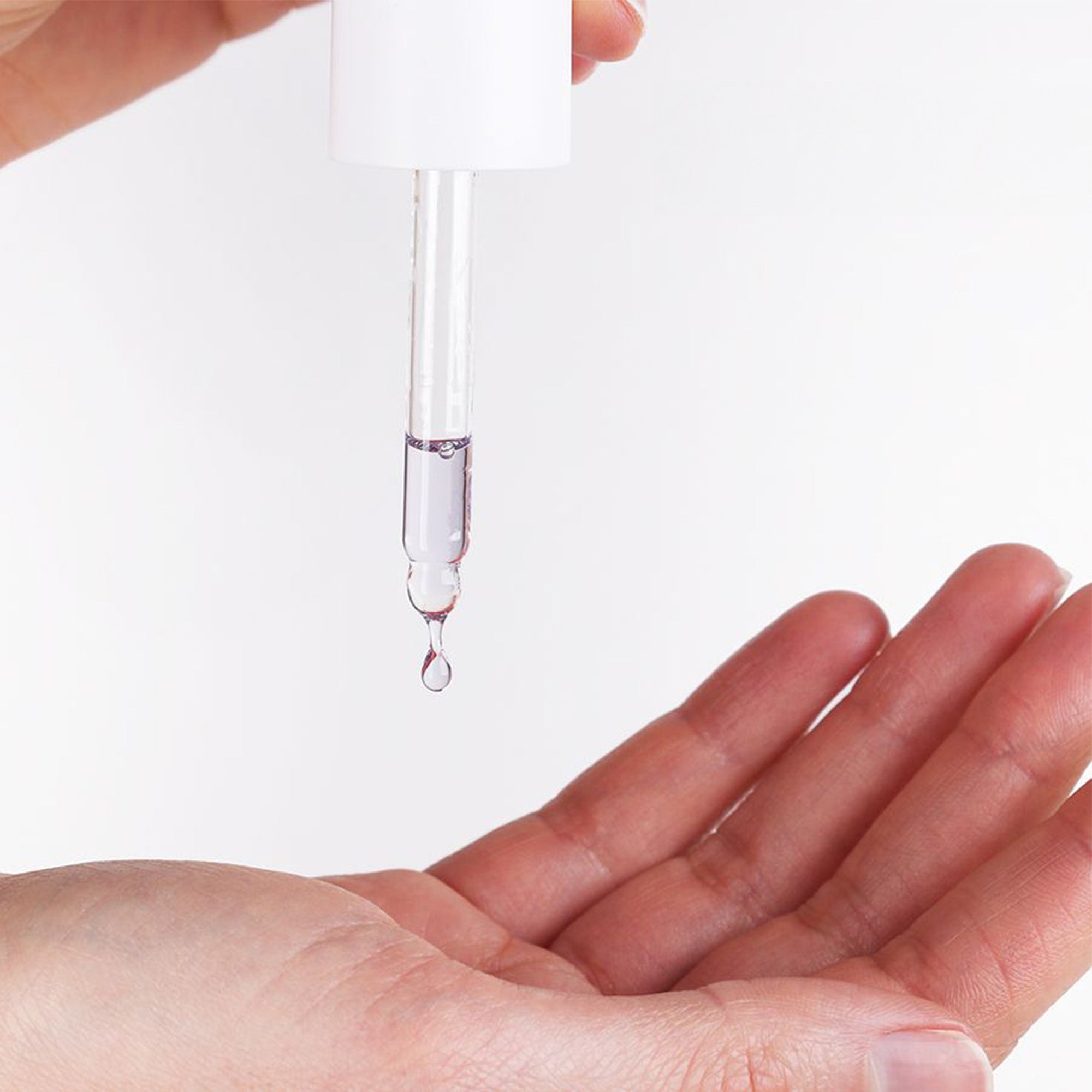
Bakuchiol:
A plant-based alternative that mimics retinol’s effects without the associated irritation, suitable for those who cannot use vitamin A derivatives.
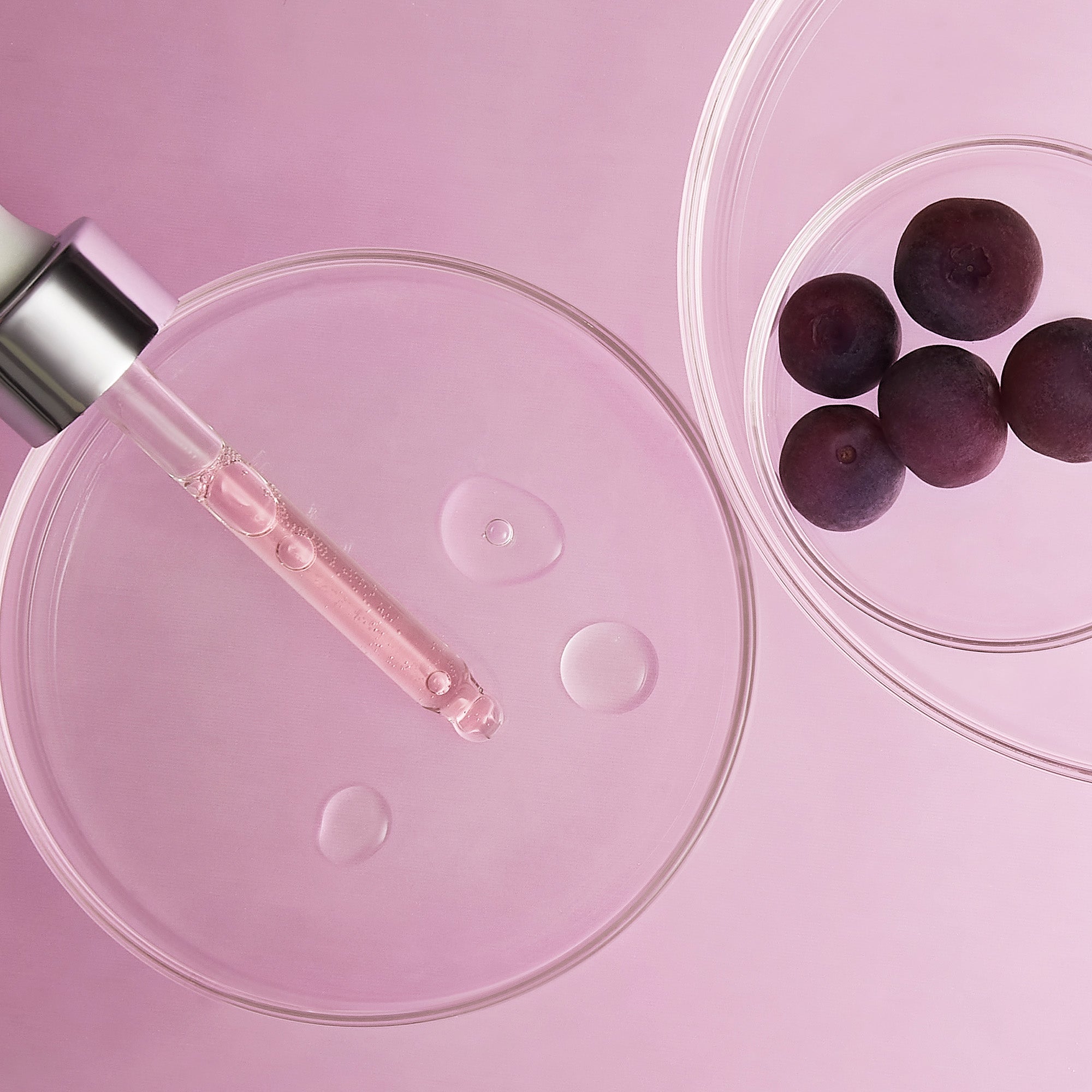
Peptides:
Effective for boosting skin health and resilience without the potential for irritation associated with retinoids.
Choosing a retinoid
Selecting the right retinoid depends on your skin type and specific concerns. For those with sensitive skin or new to retinoids, both retinol and retinaldehyde offer gentle yet effective options. Retinaldehyde, in particular, provides a balanced approach with visible results while maintaining a higher level of gentleness on the skin than retinol. Tretinoin, being prescription-based is typically reserved for more severe concerns and should be used under the guidance of a dermatologist or healthcare professional.
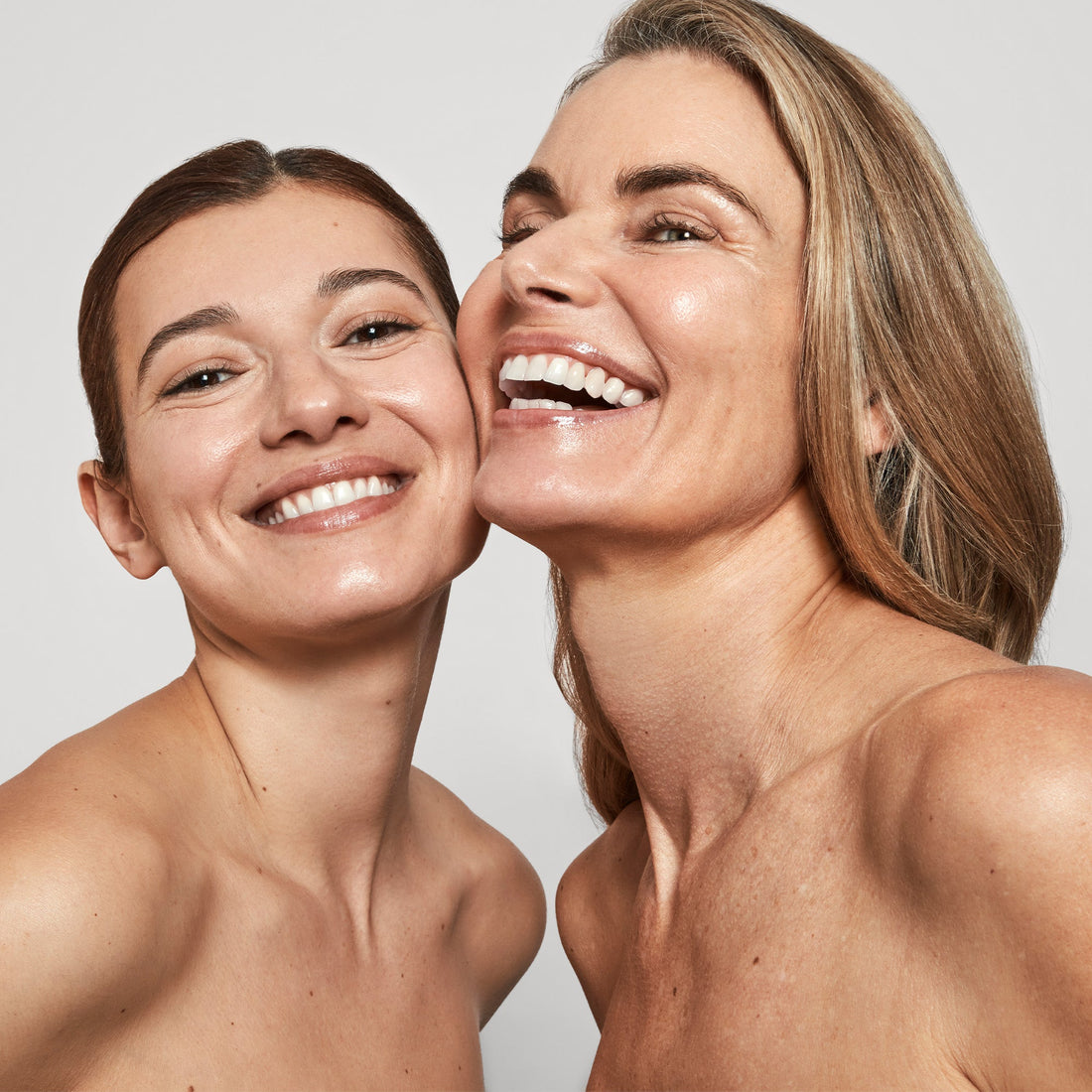
To Takeaway
Understanding the differences between retinol, retinaldehyde, and tretinoin is crucial for selecting the right retinoid for your skin concerns. Retinol offers a gentle approach, making it ideal for beginners or those with sensitive skin, while tretinoin delivers more rapid and pronounced results for severe issues but requires careful, supervised use to manage potential side effects. Retinaldehyde provides a balanced alternative, offering potent effects with less irritation. Remember, while faster results are desirable, they may come with added side effects, so patience is key. Ultimately, choosing the right retinoid depends on your skin type, concerns, and tolerance. Always consider your individual needs and consult a skincare professional or doctor to ensure you’re using the most effective and appropriate product for your skincare goals.
FAQ's
Yes, you can switch from retinol to tretinoin if you need prescription-based medicine. However, if retinol is working well for you, there might be no need for an immediate change. Instead, we would recommend trying Crystal Retinal, which offers visible improvements to the skin but with a gentler approach thanks to Medik8’s patented stability complex. Crystal Retinal provides a balanced solution that bridges the gap between retinol and stronger retinoids, delivering effective results while minimising potential irritation. This makes it an excellent alternative for those looking to improve their skincare routine without the higher potency of tretinoin.
Tretinoin is a powerful medication primarily used for treating acne, though it is also known to improve the appearance of skin texture and fine lines. However, due to its potency, it may come with a higher risk of irritation. For anti-ageing, retinol and Crystal Retinal are effective alternatives. Retinol works gradually to address early signs of aging and is suitable for those with sensitive skin or new to retinoids. Crystal Retinal provides enhanced efficacy with a gentler profile, offering noticeable improvements in reducing stubborn wrinkles and uneven skin texture without the higher potency of tretinoin.
Using retinol and tretinoin together is generally not recommended due to the risk of excessive irritation and dryness. Both are potent retinoids with strong effects on the skin, and combining them can overwhelm your skin barrier. It’s usually best to choose one based on your skin's needs and tolerance and consult a dermatologist for personalised advice if you're considering incorporating both into your routine.
Tretinoin is significantly stronger than retinol. Tretinoin is already in its active form, retinoic acid, and works directly on the skin, making it far more potent than retinol, which must first convert to retinaldehyde and then to retinoic acid to become effective. This increased potency leads to faster and more pronounced results, but also a higher risk of irritation.
If you’re achieving your desired results with retinol, you might not need to switch to tretinoin. Retinol is effective for improving skin texture and reducing early signs of ageing. It’s best to assess your skin’s response and consult a dermatologist to determine if transitioning to tretinoin is necessary for your specific needs.
Yes, tretinoin is generally more harsh than retinol. Tretinoin is a more potent retinoid, working directly as retinoic acid, which can lead to increased irritation, redness, and peeling, especially when first introduced. Retinol, being less potent and requiring conversion to retinoic acid, tends to be gentler on the skin, making it a better option for those with sensitive skin or those new to retinoids.
While 1% retinol is not equivalent to tretinoin, both ingredients play important roles in skincare. Tretinoin is a potent form of vitamin A that acts directly as retinoic acid, making it effective but also more likely to cause irritation. In contrast, retinol converts to retinoic acid through a two-step process in the skin, which can result in a gentler experience. Despite this, retinol is still a powerful and effective ingredient, with 1% formulations offering significant benefits for skin texture, fine lines, and overall radiance. It provides a more gradual approach, making it suitable for those who may be more sensitive to stronger retinoids.
Tretinoin is a derivative of vitamin A. While vitamin A refers to a group of compounds, including retinol, retinaldehyde, and retinoic acid, tretinoin (also known as all-trans retinoic acid) is a specific, active form of retinoic acid used in skincare. It is more concentrated and delivers a stronger impact on the skin compared to other forms of vitamin A.
While tretinoin is known for its high potency, retinaldehyde (retinal) offers a more balanced approach with impressive effectiveness. Retinaldehyde converts to retinoic acid in the skin, providing its benefits in a gentler way. This makes it an excellent choice for those looking for significant improvements in skin texture and radiance with a lower risk of irritation.
Tretinoin is stronger than retinaldehyde (retinal). While retinaldehyde is a potent form of vitamin A, it still requires conversion to retinoic acid to be fully effective. Tretinoin, or retinoic acid, is already in its active form and delivers more intense and immediate results. Other strong retinoids include adapalene and tazarotene, which also offer powerful effects but with varying mechanisms and side effects.
